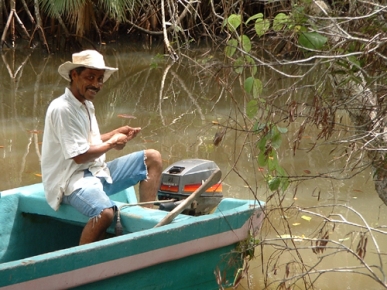The secret to Belize's ocean conservation: Belizeans

Ian Morton/Flickr
Why does foreign aid often fail?
Big international projects are often not connected to the skills, aspirations, and cultures of the people they aim to help. Rather than empower people to help themselves, they attempt, often unsuccessfully, to impose solutions from the outside.
Fortunately, development institutions are learning from these mistakes. In trying to help Belize improve their fisheries and – simultaneously - the conservation of the country’s incredible barrier reef and associated complex of nearshore habitats, EDF has tried to apply lessons learned from Big Development to take a much different approach.
Starting with the locals
EDF staff spent a long time listening to Belizean fishermen, government officials, and local NGOs to learn the lay of the land – how things worked there. We hired talented local staff. We identified strengths – including a strong ocean conservation ethic inculcated in young children, well-trained government staff, and highly competent NGOs that co-manage natural resources with the government – as well as weaknesses.
Dozens of meetings and workshops held over several years allowed Belizeans to articulate their needs and aspirations with respect to fisheries and the future of their coral reef.
As a result, Belize is poised to transform its fisheries and improve the performance of its marine protected areas and conservation programs.A national system of managed access areas will empower local fishermen as stewards of their own fisheries, by allowing them to exclusively benefit from the buildup of fish inside the no-take zones adjacent to them.
Science-based catch limits are under development now, combining local data and local knowledge with some outside expertise in data analysis and modeling. In contrast to the usual chilly reception to new management systems, Belizean fishermen are demanding managed access and some even are demanding larger no-take zones – a testament to the power of developing solutions from the ground up, and supporting them from the top down.











